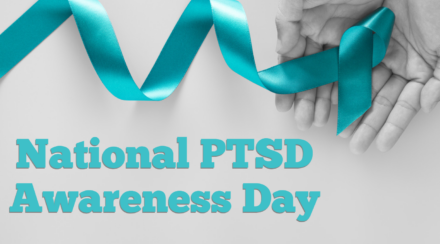Menu

Cancer and the Workplace: Part 1, Discovery and Diagnosis
In one way or another, we’re all deeply familiar with cancer. There was an estimated 18.1 million cases worldwide in 2020, and so oftentimes if you ask someone if they have a ‘cancer story’, the answer will be yes.
Back in January of this year, I was over in New York meeting colleagues and networking (pictured below), and I suddenly got a stabbing pain around my heart. Immediately, I assumed the worst, and took myself to a walk-in clinic. When I was being seen to, I was taken off-guard by the doctor asking when my last mammogram was, to which I told him it was August 2022, and he quickly dismissed the pain being anything to do with my breasts.

A few weeks after my return to the UK, I felt the same pain again. I went to get myself checked, and when I did I asked specifically if I could have a mammogram done. Despite the doctor believing that this wasn’t necessary, she agreed. After my mammogram, I was then invited to do an ultrasound, and then a biopsy all in the same day. Weeks later, I was given my diagnosis of breast cancer.
This was when the reality of my situation really hit me, and what I’ve seen throughout my journey with cancer is that every person’s experience with it is entirely unique. For me, being told what was wrong just immediately put me into action-mode. I wanted to create an action plan of how to get rid of it, I wasn’t really letting the weight of the word be felt. It was only when you have to navigate telling loved ones, friends, and colleagues that it became harder.
A cancer diagnosis is undoubtedly going to affect your working life. It is also going to affect your personal life in a number of ways depending on the context of your situation, and this will no doubt have trickle down effects into your professional life as well. In a situation like this, when someone receives a diagnosis of a long-term illness, the line between professional and personal is forced to blur, and how an employer responds to and supports someone through this is a very key part of their journey.
Whilst I was fortunate enough to have a great support network around me, including family, friends, and colleagues, for others this situation can be very different. For those who have a smaller network, or for those who live alone, something like work can play a huge role in their life and act as an important factor to getting them out of bed in the morning. With a diagnosis comes treatment, and this inevitably means having to go through months of recovery, and this can result in a lot of loneliness and feeling like you lack purpose.
In the same breath, a cancer diagnosis can be straining on relationships. Some find that their romantic relationships break down during this time, and this is going to have a great effect on someone as they embark on their journey.
What I am trying to highlight is that the context of cancer is always going to be different, and so for an employer, the best thing they can do in this situation is communicate with their staff member. Ask them what support they need, what they feel will best help them, and take it upon themselves to become familiar with what it looks like to support someone with their specific diagnosis – as each cancer is entirely different.
In addition to this, regular one-to-ones and check-ins just as a standard practice are a great way of ensuring that managers remain up to date and consistent. I could not believe how many people felt embarrassed or ashamed of having to tell their employers about their diagnosis, to the point where they wouldn’t even disclose it until their surgery date had been set. Having these regular check-ins as standard practice is much more likely to result in employees feeling they can be honest and open about something like this.
In the next part of this series, I am going to be discussing what role the employer can play in supporting a staff member who is going through the treatment and recovery process of their cancer journey. In the final part, we will explore the remission and return to work, and the best ways for employers to make this re-assimilation as smooth as possible.
In the meantime, if you would like to discuss the coaching services and workshops we offer around cancer in the workplace, please get in touch with me at therese@orgshakers.com



